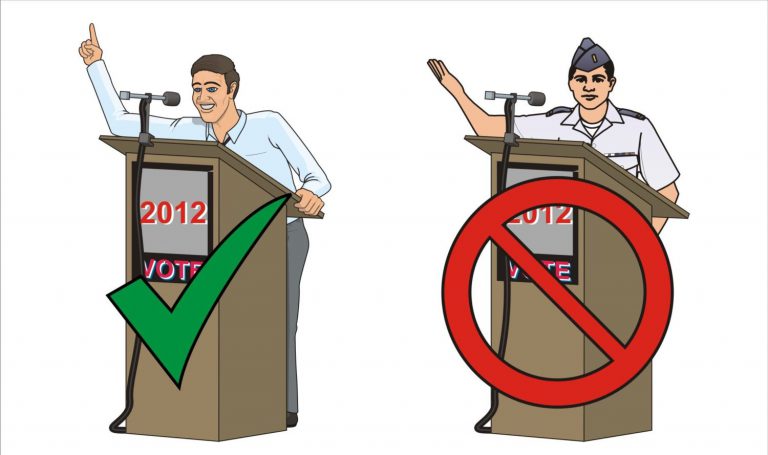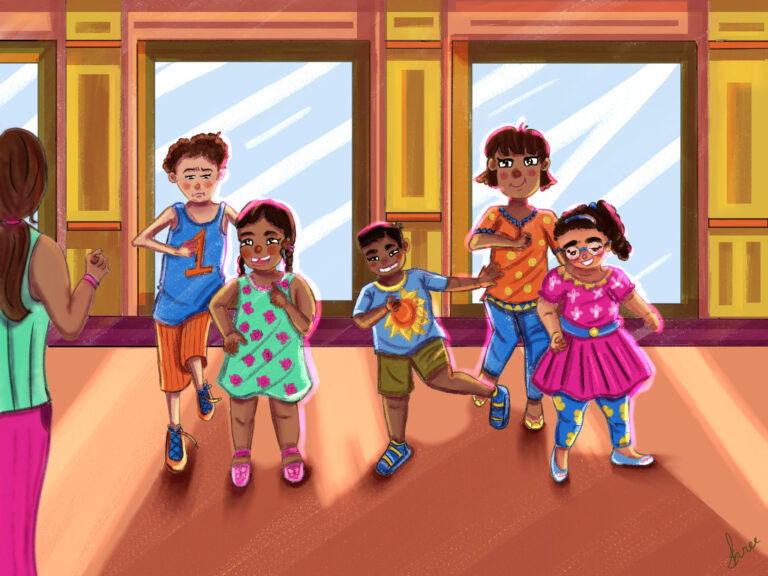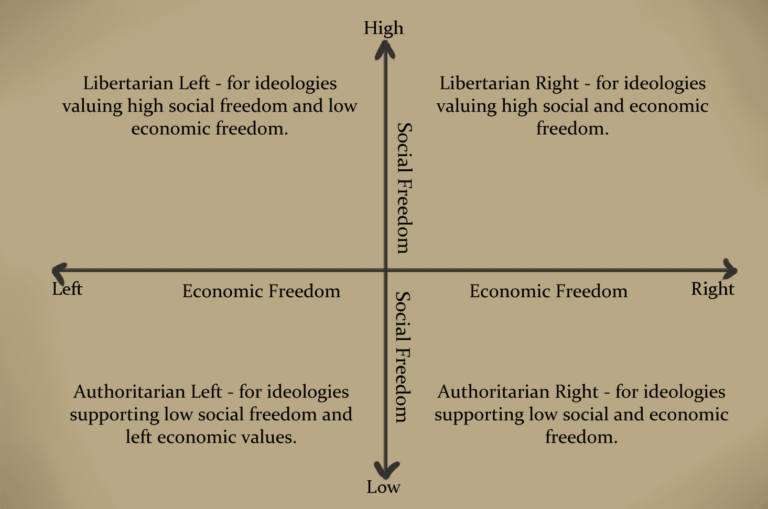The binary and the fallacious choice
“Looks like you are prone to choosing either low extreme or high extreme alternatives. You fail to see liminal spaces.”
This line, as communicated to me by an earlier therapist of mine, made me ruminate at a great length. The conundrum with this line is that it fails to account for systemic and structural barriers; it merely serves to explain a seeming personality deficiency of mine as a manifestation of my immanent disposition as opposed to taking into socio-historical conditions.
In a heteropatriarchal capitalist society, women are impelled into a fallacious, definitive binary system of choices: you can either be this or that. The problem with the conceptual category of ‘choices’ is that they are depicted in an abstracted fashion which proclaims that choices are made in a vacuum, when really all choices are influenced by socio-historical structures. In this article, we will take a look at the deleteriously limiting binary system of choices which is made available to women, through multifarious examples, and how this dictates the imagination of a woman.
Symptoms
- The ever-living Madonna-whore complex
The detrimental ‘Madonna-whore’ complex, as pioneered by Sigmund Freud, has been on-going, and keeps being refashioned with every novel epoch. This complex talks about how a woman can either be a Madonna (another name for Mother Mary) or a whore. Such an unhealthy conceptualisation pigeonholes women and circumscribes their actions to only be viewed through the lens of whether they are appeasing to men. Freud saw this as men’s inability to engage in sexual intercourse with the women they “loved”. Notwithstanding, this inches far deeper. This vantage point is reflection of an inherently misogynistic mindset which conceives sex as an “impure” entity that is only inflicted on women, and thus should not be done to “pure and innocent” female romantic partners or family members. Currently, glimpses of the ever-sustaining madonna-whore complex can be found in the Gen-Z “feminist” discourse of “high-value versus low-value” women, wherein high-value women “preserve” their energies by not sharing their bodies with any Tom, Dick, and Harry, unlike “low-value” women. The madonna-whore complex has also been depicted in a series of films and literature:
“Tumhari jaisi ladki flirting ke nahi ishq ke liye bani hai”
Yeh Jawani Hai Dewani (Bunny says to Naina)
Juliana: If your wife is so beautiful, why are you here with me?
Modern Family (A conversation between Juliana and Clive Bixby [aliases of Phil Dunphy and Claire Pritchett])
Clive Bixby: Because I respect her too much, to do to her what I am going to do to you
- The Pick-Me Phenomenon
In my opinion, in contemporaneous times, the pick-me phenomenon has been greatly influenced by the madonna-whore complex. The “pick-me” girl is normatively viewed as a person who tries to impress men by claiming a detachment from the rest of “the women species”. People act in an ignorant fashion and fail to understand that labelling someone as a “pick-me” does not help anyone and is also inherently sexist. Viewing women’s actions as only a means to be “picked”, that too, by men is inimical beyond words. Nowadays, everything can be a potential “pick-me” move, whether it is applying lipstick, playing video games, watching films, or even talking in, what is deemed to be, a childish tone. Even when the female protagonists of ‘Sex and the City’ were discussing the men in their life, one of the characters, Miranda Hobbes implies that such an act is “pick-me” because “How did it happen that four such smart women have nothing to talk about but boyfriends?” However, such harsh criticism is never levied on men, even when they freely discuss women and their bodies, at will.
Presently, every act of a woman’s life is deeply scrutinised, even the ones wherein they are merely discussing the interpersonal relationships of their life (as aforementioned), and subsequently judged by the barometer of “pick-meness”. The “pick-me” tag is applied to anything and everything, and such is the deeply misogynistic portrayal of things, such that it appears that every action of a woman’s life is possibly undertaken to fulfil one of two alternatives: to please men or to not please men. Men are viewed as an inextricable component of women’s lives. In a heteropatriarchal capitalist society, all questions, such as “Ooh, you are wearing a skirt/you have put on makeup/you have gotten a haircut, whom have you dressed up for?” and their answers locate their locus in men. To even consider that men could potentially not be a part of the equation, is seen as thoroughly radical. This explains why queer women’s video transitions, of them displaying how their style has altered as they metamorphosed into a queer woman from a “straight” women, is met with intense criticism from cis-heterosexual men, who claim that the “new style sucks because men would never like it”. In such a heteropatriarchal capitalist society, it is inconceivable to reckon that one has not been scathed by patriarchy. Nevertheless, it seems that women who are purveyors of patriarchy, are denigrated far more than men who perpetuate patriarchal notions, and indubiously, this is misogynistic in nature as women are being criticised more severely than men for perpetrating the same act. It seems as though, currently, “pick-me” acts as an extremely convenient excuse which misogynists employ in order to justify their misogyny. This is because, such a label, once again, compartmentalises women and limits their actions to only be viewed through the lens of whether they are appealing to men. Most actions which have been labelled as “pick-me” are innocuous in nature; the only thing worth being labelled as ‘problematic’ is when women disparage other women in order to increase their worth in the eyes of men. However, this occurrence was succinctly explained by the writer, as well as a professor at Richmond College, Deniz Kandiyoti in her journal article, ‘Bargaining with Patriarchy’: In order to understand this, we must advert to the long-standing contention between mothers-in-law and daughters-in-law.
Most times, given the presence of systemic and structural barriers, women are rendered into having to bargain with patriarchy. Thus, mothers-in-laws deploy the strategy of fazing the novel addition of the daughter-in-law in order to gain an iota of respect and social standing in the heteropatriarchal family, which would otherwise sideline her on account of her increasing age. Akin to this, so-called “pick-me”(s) who deprecate other women do so only because this heteropatriarchal society makes them feel insecure about their standing in society which engenders them to criticise other women in order to feel as though they have acquired a safe position by standing in solidarity with misogynistic men. This is not incredible to think about in a society wherein a woman’s worth is said to be contingent upon the extent of attention she is able to garner from men. Consequently, women are made to think that should they fail to assimilate into this patriarchal culture, they will be ostracised; this explains why some women feel ought to harshly criticise other women, and behave in a misogynistic manner towards them, especially on account of engaging with, what is deemed as, “girl’s things”.
- The internet
Women are embedded in, what is purported to be, a system of binary choices not just out here, in the “real” world but also on the internet, which merely mirrors this “real” world of ours. The aforementioned phenomena, inter alia, also exist in this technological realm. To believe that the internet exists in an abstraction is a gross fallacy. Human beings have a tendency to overlook the fact that one’s experience of the internet is multilayered and intersectional; while some aspects of one’s identity can facilitate a good encounter with the internet others serve to mar it. In terms of the ‘madonna-whore complex’, akin to the “real” social world, even on the internet, women are either madonnas or whores. Women are allowed to have only a certain niche of content on social media applications, beyond which they will be criticised.
The apparently dichotomous battle between women who post dancing videos of themselves versus those who do not, is a good starting point. Content, coming from women, is hierarchized on the basis of social acceptability, which is contingent upon one’s multifarious social identities, with academic/unassuming content ranking the highest and dancing/twerking videos occupying the lowest echelon. Thus, the range of choices made available to women in “real” life is exactly the same on the internet i.e., a binary system emerges. Women become either this or that. A woman can either be attractive or smart; one or the other. Consequently, it is a rather common phenomenon to witness that women separate their private “personal” accounts from their public “professional” accounts. A woman who posts “too many” videos or pictures of herself is considered to be promiscuous, in a derogatory manner, and is subsequently, not taken seriously; any opinion from such an account is considered to be unfounded.
Effect
When women are embedded in such a system so that only binary opposing choices are made available to them, it grievously affects intersectionality. Women do not form a homogenous category, they are divided along lines of caste, class, race, ethnicity, and so forth. When the world is depicted in a binary manner, women’s ability to effectively mobilise for intersectional causes is impeded, with women being relegated to just speak about “women’s causes” instead of finding interlinkages between multifarious social identities. This greatly helps a heteropatriarchal capitalist system which capitalises on such ignorance as intersectionality would mar the economic regime of capitalism. This is because the raison d’etre of capitalism is standardisation and it proselytises the idea of people choosing one particular role and sticking to it continually, giving rise to the notion that a woman should choose one of the two options presented to her, at every stage of life, and further sticking to it.
Treating the symptoms will never aid in treating the disease of the heteropatriarchal capitalist system. To summarize, in a heteropatriarchal capitalist society, women are presented with a binary choice system, from which they must choose one and abide by it. Such a system is immobile, pigeonholes women, and makes them bereft of emancipatory agency. Thereby, when my, now-ex, therapist mentioned that I am “prone to choosing either low extreme or high extreme alternatives,” it is so because as a woman, in a heteropatriarchal capitalist society, that is all that has been made available to me. It serves the hegemonic groups in a society to depict choices in such a light as though they are made in a vacuum, with no outside influence. Nevertheless, all choices are affected by socio-historical conditions. However, we must not lose hope and as we go about dismantling this heteropatriarchal capitalist society, we must aspire to be more and to be less, concomitantly; to exist in liminal spaces, in stretches of everything interspersed with sweet nothings.








